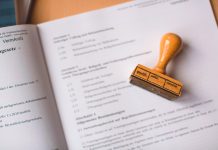Almost half of risk and compliance, internal audit, C-suite executive and board professionals are planning to modernize their compliance functions, according to a recent survey.
A recent poll by Deloitte found that 48.3% of those surveyed are looking to change core compliance execution practices during the next 12 months. Resource levels for compliance teams are also expected to increase (27.5%) or stay flat (37.6%) in the year ahead for the majority of organisations.
Deloitte defines compliance modernisation as a ‘functional transformation’ that pulls on productivity levers across the organization, including emerging technologies, such as cognitive compliance, automation and robotics, to drive integration of risk and compliance with business strategy and drive value across the enterprise.
Only 11.5% of professionals surveyed reported that their compliance functions are value-creating,or seen as a strategic advisor that offers predictive insights and greatly efficient through the use of RegTech.
Rebecca Chasen, Deloitte Risk and Financial Advisory partner, Deloitte Financial Advisory Services, said: “Thankfully, compliance modernising technologies are evolving quickly and becoming more available, enabling compliance teams of various resourcing levels to streamline processes, increase capacity and continue to do more with less. Of course, compliance teams need more than technology alone to offer strategic counsel and predictive insights to leadership.”
Only 11.5% of professionals surveyed reported that their compliance functions are value-creating, or seen as a strategic advisor that offers predictive insights and greatly efficient through the use of RegTech.
More than 420 professionals in compliance (22.4%), internal audit (31.8%) and risk management (12.3%) or holding C-suite or board (32.3%) roles participated in a Deloitte Dbriefs webcast, titled “Modernising compliance: A tech lens on value protection and creation,” during which they were polled.
When asked which group in their organisations is most responsible for executing compliance, 24.9% say the first line of defense — business units, their professionals and centers of excellence. Even more (26%) say the second line of defense — risk management and compliance; and, 34.4% said the first and second lines of defense are equally responsible.
Compared to 12 months ago, respondents say their organisations’ compliance and information technology teams work more closely together (37.4%) or just as closely together (34.5%) now as before. Just 6.8% report compliance and IT functions working less closely together now than they did a year ago.
“One of the typical challenges we see companies face while trying to achieve a modernized compliance program is weighing ‘shiny and new’ solutions against those that have been evaluated as sustainable, effective solutions. It may seem simple to differentiate between the two, but it’s not always,” added Tom Nicolosi, Deloitte Risk & Financial Advisory principal, Deloitte & Touche.
“To me, the question to ask of a solution is ‘will this robotic process automation, artificial intelligence and/or cognitive computing solution have the power to increase productivity, drive down costs and create value across the organization via a solution all three lines of defense — business units themselves; risk management and compliance functions; and, internal auditors — can leverage?”
Copyright © 2018 RegTech Analyst
Copyright © 2018 RegTech Analyst






